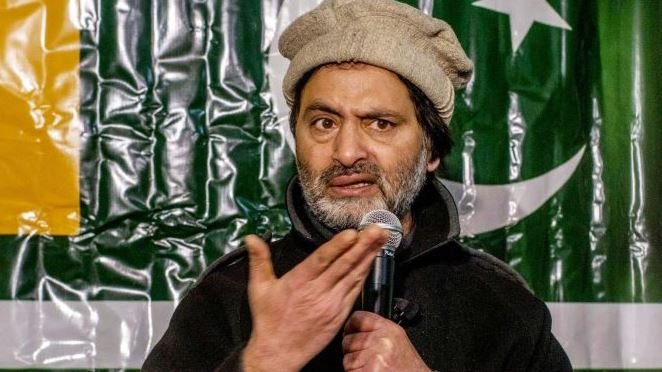Delhi HC Orders Proper Medical Care for Yasin Malik, Allows Hospital Transfer if Needed
HC Reviews Malik’s Health, Says Jail Must Provide Adequate Medical Facilities
NEW DELHI, Nov 28: The Delhi High Court on Friday directed the Tihar Jail authorities to ensure that separatist leader Yasin Malik receives appropriate medical attention in accordance with his health condition, while also making it clear that if necessary treatment is unavailable inside the prison, he must be shifted to a suitable hospital equipped to provide it.
Justice Neena Bansal Krishna, while hearing Malik’s petition seeking specialized medical care, noted that the medical records annexed by Malik were from 2017 and that the latest report submitted by Tihar Jail did not indicate any life-threatening ailment at present. However, the court stressed that his health needs must be addressed without delay and with professional oversight.
“The petition is disposed of with direction to the jail authorities to provide appropriate medical treatment as per his condition, and in case the said treatment is not available there, the same may be provided in the hospitals having the requisite facility,” the bench stated in its order.
Malik, who is currently serving a life sentence in a terror funding case after being convicted under the UAPA and IPC in May 2022, had sought treatment at AIIMS or any other super speciality hospital in Delhi or Srinagar, citing serious cardiac and kidney ailments. His counsel argued that he requires urgent cardiology supervision, asserting that no cardiologist is available inside Tihar Jail.
The Central Government’s counsel, however, informed the court that Malik is classified as a high-risk inmate and that the authorities have issued a fresh communication restricting his movement outside Tihar Jail due to security concerns. The counsel also pointed out that he undertook multiple hunger strikes in 2022, 2023 and 2024, during which he refused food and medicines, requiring careful medical monitoring to prevent any critical deterioration.
Malik’s petition alleged that despite his serious medical condition, the jail administration had not facilitated necessary hospital visits, citing restrictions under Section 268 of the CrPC, which limits his movement beyond Tihar Jail and Delhi’s jurisdiction. The plea claimed that these restrictions were used as a reason not to shift him even when he was reportedly unwell or required to appear before the court.
The High Court, however, took note of Tihar’s submission that Malik had been medically evaluated earlier, including by doctors at AIIMS, and that he was provided the required treatment at those times.
Meanwhile, the National Investigation Agency’s appeal seeking enhancement of his life sentence to the death penalty remains pending before the High Court.
With the court’s latest direction, the onus is now on Tihar Jail authorities to ensure that Malik’s health is monitored regularly and that any specialised care required is provided promptly and transparently, either within the prison system or at an appropriate medical institution.




